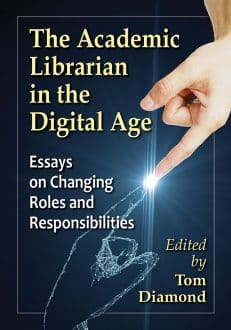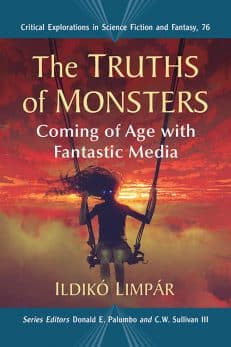The Truths of Monsters
Coming of Age with Fantastic Media
$39.95
In stock
About the Book
As monster theory highlights, monsters are cultural symbols, guarding the borders that society creates to protect its values and norms. Adolescence is the time when one explores and aims at crossing borders to learn the rules of the culture that one will fit into as an adult. Exploring the roles of monsters in coming-of-age narratives and the need to confront and understand the monstrous, this work explores recent developments in the presentation of monsters–such as the vampire, the zombie, and the man-made monster–in maturation narratives, then moves on to discuss monsters inhabiting the psychic landscapes of child characters. Finally, it touches on monsters in science fiction, in which facing the monstrous is a variation of the New World narrative. Discussions of novels by M. R. Carey, Suzanne Collins, Neil Gaiman, Theodora Goss, Daryl Gregory, Sarah Maria Griffin, Seanan McGuire, Stephenie Meyer, Patrick Ness, and Jon Skovron are complemented by analysis of television series, such as Buffy the Vampire Slayer and Westworld.
About the Author(s)
Bibliographic Details
Ildikó Limpár
Series Editors Donald E. Palumbo and C.W. Sullivan III
Format: softcover (6 x 9)
Pages: 257
Bibliographic Info: notes, bibliography, index
Copyright Date: 2021
pISBN: 978-1-4766-8348-5
eISBN: 978-1-4766-4374-8
Imprint: McFarland
Series: Critical Explorations in Science Fiction and Fantasy
Table of Contents
Acknowledgments vi
Introduction: Monsters Roaming the Space of Coming of Age 1
Part I—Monstrous Family Matters
1. The Monstrous Friend and Lover: Buffy the Vampire Slayer and Stephenie Meyer’s Twilight Saga 16
2. Apocalyptic Monsters in Need of a Family: Daryl Gregory’s Raising Stony Mayhall and M.R. Carey’s The Girl with All the Gifts 36
3. The Rebellious Child: Jon Skovron’s Man Made Boy and Sarah Maria Griffin’s Spare and Found Parts 58
4. Oppressed Daughters and Oppressing Fathers: Theodora Goss’s The Extraordinary Adventures of the Athena Club Series 81
Part II—The Monstrous Wilderness of the Teenage Mind
5. Dangerous and Safe Spaces: Neil Gaiman’s The Graveyard Book and Coraline 100
6. Destructive and Healing Psychic Landscape: Siobhan Dowd and Patrick Ness’s A Monster Calls 121
7. Spaces of Escape for the Abused: Seanan McGuire’s Wayward Children Series 140
Part III—Inhuman(e) Frontiers of Growing Up
8. Alien New World Wilderness: Patrick Ness’s Chaos Walking Trilogy 160
9. “Muttated” New World Garden: The Hunger Games Trilogy 181
10. Frankensteinian Wild West for Adults Growing Up: HBO’s Westworld 197
Conclusion 219
Chapter Notes 225
Works Cited 235
Index 247
Book Reviews & Awards
• “Explores the historical and contemporary narrative of the monster in fiction…focus[es] on adolescent dealings with monsters, and the different parts of society they occupy…Limpár gives readers familiar references as they read about monster psychology and how the characters’ reactions to their circumstances parallel real-life reactions to things out of one’s control. This book is an interesting read for all lovers of fantasy and horror, and its academic tone could also make it useful for a freestyle literature course.”—Booklist
• “A wonderful exploration of young adult monster fiction narratives that demonstrates the usefulness, interest and possibilities of monsters. It reminds us what a monster truly is, outside initial appearances. Most importantly, Limpár reminds us what human values we need to save the world from the social monsters: respect, responsibility, compassion and hope.”—The Geek Anthropologist






